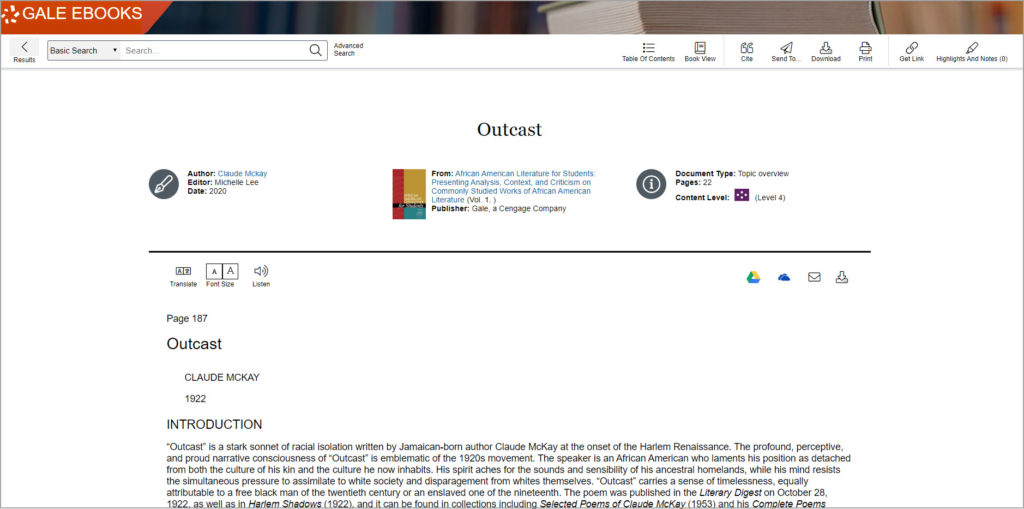| By Sarah Robertson |
Black History Month, observed every February, is an opportunity to celebrate African American literature. Through literature, African Americans have advanced a powerful message of agency and countered a dominant cultural discourse of oppression, coercion, and racism. For African American authors, literature has served as a means of validating and valorizing shared community traumas and triumphs, while at the same time critiquing profound injustices in American society.
Black authors have consistently used literature to explore the myriad ways African Americans have been both the victims of history and the active, creative drivers of a shared community experience. By using literature as a means of expression, blacks have affected social and political change through their stories of racial discrimination in America.
African American literature has its roots in the 18th century with slave narratives. These searing testaments to the evils of the slave trade were essential to the abolitionist movement and ultimately the passing of the Thirteenth Amendment, which abolished slavery in the United States. The post-slavery era in African American literature continued to highlight the hardships faced by blacks in the Jim Crow South, where an entrenched system of racial segregation held sway from the late 19th century until the middle of the 20th century. Prominent voices of this period included Booker T. Washington, W. E. B. DuBois, and Paul Laurence Dunbar (African American Literature for Students 1 [AALFS 1]).
The “Great Migration” of blacks to northern cities (from roughly 1916 to 1970), including Chicago, New York, and Detroit, was a response to the horrors of Jim Crow. This experience of flight and relocation gave birth to the Harlem Renaissance, an artistic movement originating in New York City that witnessed a dramatic evolution in black music, art, drama, and literature. Prominent artists including Claude McKay (AALFS 1), Langston Hughes, and Zora Neale Hurston contributed to this movement, which was a turning point in African American literature and American literature as a whole. Through the Harlem Renaissance, black artists made their way into mainstream American culture.

As blacks fought to put an end to segregation and racism during the civil rights era of the mid-20th century, writers such as Richard Wright, Gwendolyn Brooks, and Lorraine Hansberry took up the pen to draw attention to the many injustices they faced in American society. Subsequently, beginning in the late 1960s and into the new millennium, black voices became increasingly mainstream with writers such as Nobel laureate Toni Morrison, Alice Walker, and Maya Angelou (AALFS 1).
In the 21st century, writers including Ta-Nehisi Coates, Ibi Zoboi (AALFS 1), Angie Thomas, Tyehimba Jess (AALFS 1), and Jason Reynolds (AALFS 1) have written about the modern black experience with topics that range from racism to Black Lives Matter, immigration, and coming-of-age as a black person in America. Black literature today cannot solely be defined by stories of oppression but is instead becoming increasingly multifaceted, telling the nuanced story of what it is to be an African American in the 21st century, in an era of formal, legal equality but with lingering injustices. African American literature has become as complex as the individuals who create it and the community it seeks to represent.
Celebrate Black History Month with the first volume of African American Literature for Students—available in print or eBook format on Gale eBooks! AALFS 1 includes entries covering poetry, novels, short stories, and drama—works never before covered in For Students—ranging from early 20th-century works to contemporary works. The assortment of genres, authors, and time periods provides a snapshot of the dynamic and diverse voices of African American literature.
Meet the Author
Sarah Robertson is a writer, editor, and longtime contributor to For Students.

